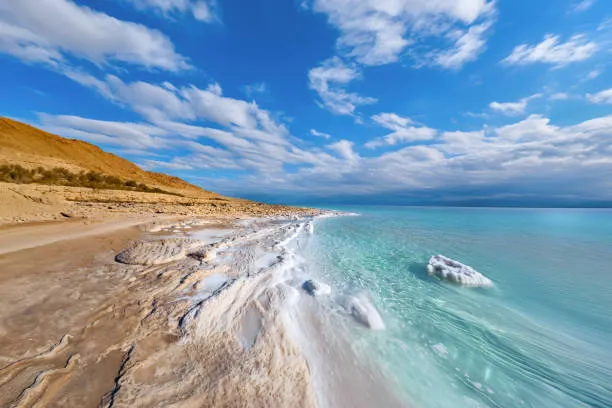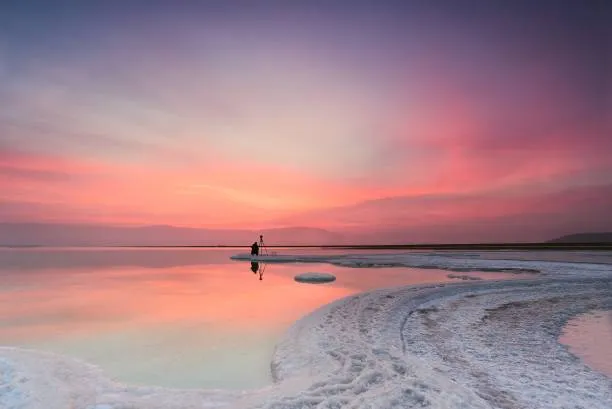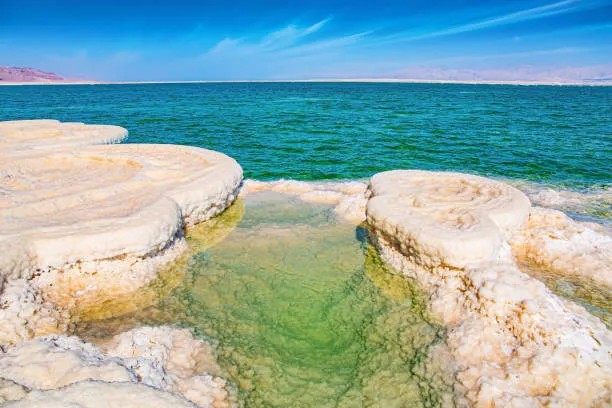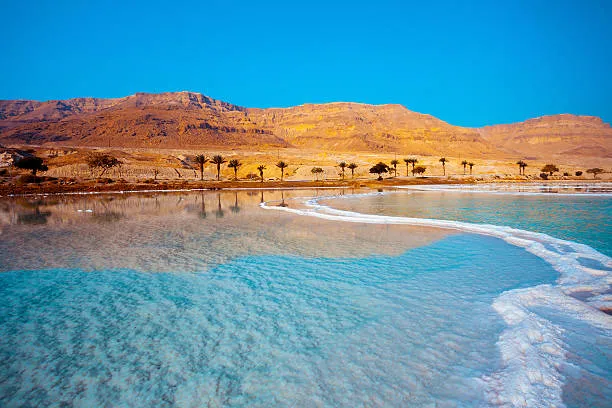Introduction
Imagine a body of water so salty that no fish, plants, or aquatic life can survive in it. Welcome to the Dead Sea, a marvel of nature that’s as fascinating as it is unique. But don’t let the name fool you—this “sea” is brimming with wonders waiting to be explored. Why is it called the Dead Sea? Simply because its extreme salinity doesn’t support life, creating a lifeless yet mesmerizing ecosystem.
Geographical Significance
The Dead Sea is nestled between Jordan to the east and Israel and the West Bank to the west. Sitting at more than 430 meters below sea level, it holds the title of the lowest point on Earth’s surface. This geographical oddity attracts scientists, adventurers, and tourists alike.

Unique Features of the Dead Sea
High Salinity Levels
The Dead Sea’s salinity is over 30%, about ten times saltier than regular seawater. This high concentration of salt gives the water its unique buoyancy.
Floating Phenomenon
Ever dreamed of effortlessly floating on water? The Dead Sea makes this possible due to its density. Just lean back, relax, and let the water hold you up.
Mineral-Rich Waters and Mud
Loaded with minerals like magnesium, calcium, and potassium, the waters and mud are believed to have therapeutic properties. People travel from around the globe to enjoy its healing benefits.
Historical Importance
Ancient Civilizations and the Dead Sea
For millennia, the Dead Sea has been a resource and a curiosity. It provided salt and asphalt to ancient civilizations, including the Egyptians.
Biblical References
The Dead Sea appears in several religious texts. It is said to be near the ancient cities of Sodom and Gomorrah, adding a layer of mystique.
Scientific Wonders
The Chemistry of Salinity
Its hyper-salinity results from rapid evaporation in the hot climate, leaving behind salt and minerals. This unique composition is a subject of scientific fascination.
Healing Properties of Its Minerals
The minerals are believed to relieve skin conditions, arthritis, and even respiratory issues. No wonder the Dead Sea is considered a natural spa!

Tourism at the Dead Sea
Popular Tourist Spots
Ein Bokek, Mount Sodom, and Masada are must-visit destinations near the Dead Sea.
Health and Wellness Resorts
From mud baths to mineral therapies, the resorts around the Dead Sea offer a plethora of rejuvenating experiences.
Flora and Fauna
While the Dead Sea itself can’t sustain life, its surrounding areas are rich with biodiversity, featuring unique plants and animals adapted to the harsh environment.
Cultural Impact
The Dead Sea holds immense cultural importance in the Middle East. Its resources have been utilized in traditional medicine and modern cosmetics, making it a cherished natural wonder.

The Dead Sea Scrolls
In the 1940s, ancient manuscripts were discovered in nearby caves. These scrolls are among the most significant archaeological finds of the 20th century, shedding light on early Judaism and Christianity.
Economic Contributions
The Dead Sea is a hub for mineral extraction, fueling industries like cosmetics and pharmaceuticals. Its unique resources are a valuable economic asset.
Environmental Challenges
Unfortunately, the Dead Sea is shrinking due to water diversion and climate change. Efforts like the Red Sea-Dead Sea Project aim to restore its former glory.
Local Communities
The people living around the Dead Sea have adapted their lives to its unique environment, blending traditional practices with modern innovation.

Scientific Studies and Discoveries
The Dead Sea’s extreme environment serves as a natural laboratory, helping scientists understand microbial life and its implications for astrobiology.
Fun Facts About the Dead Sea
Did you know that the Dead Sea is technically a lake? Or that its mud has been used in beauty treatments for centuries? These fun tidbits make it even more intriguing.
Conclusion
The Dead Sea is more than just a geographical marvel—it’s a treasure trove of history, science, and culture. Whether you’re floating in its salty waters, exploring nearby archaeological sites, or marveling at its economic importance, the Dead Sea never ceases to amaze.
FAQs
- Why is the Dead Sea so salty?
The high salinity is due to rapid evaporation and mineral deposits from surrounding rocks. - Can you swim in the Dead Sea?
Yes, but it’s more like floating due to the water’s density. - Is the Dead Sea shrinking?
Yes, it’s losing water rapidly because of human activities and climate change. - What minerals are found in the Dead Sea?
Minerals like magnesium, calcium, potassium, and bromine are abundant. - Are there any creatures in the Dead Sea?
No fish or aquatic life can survive, but extremophile microorganisms thrive in the salty conditions.

